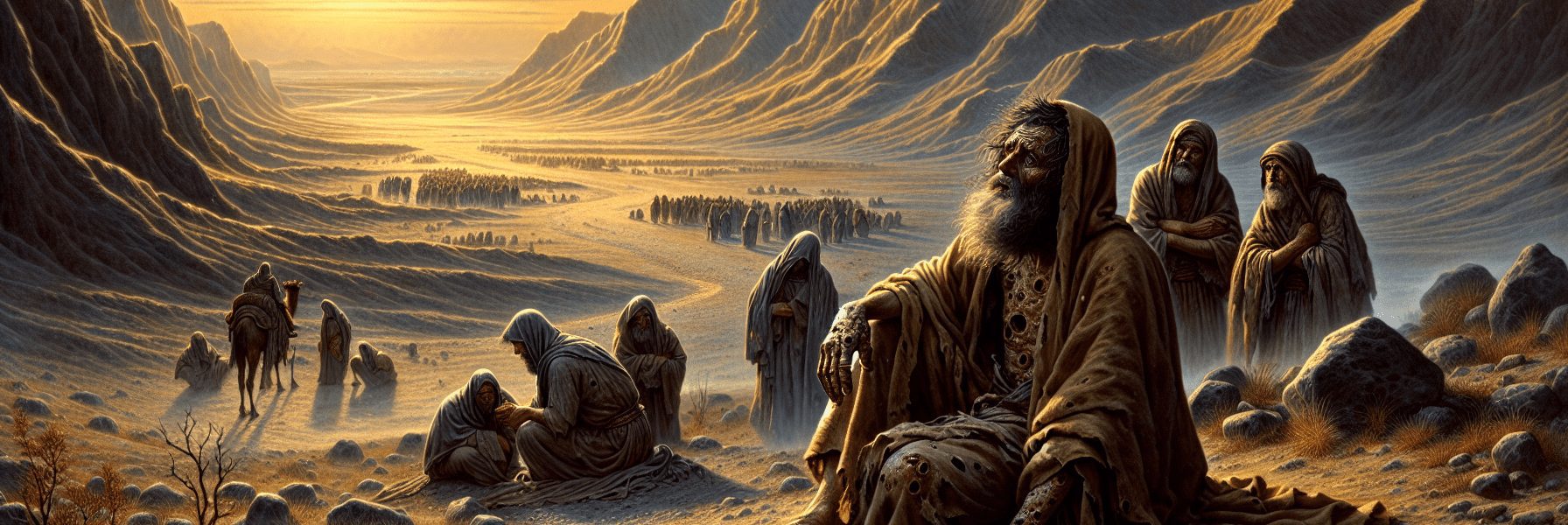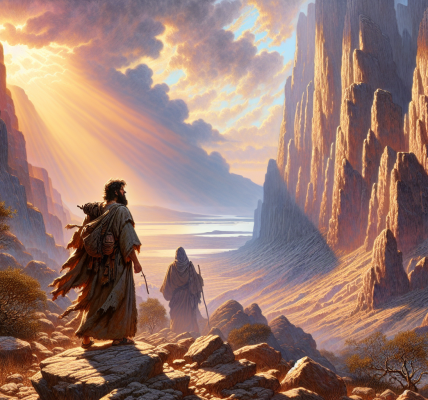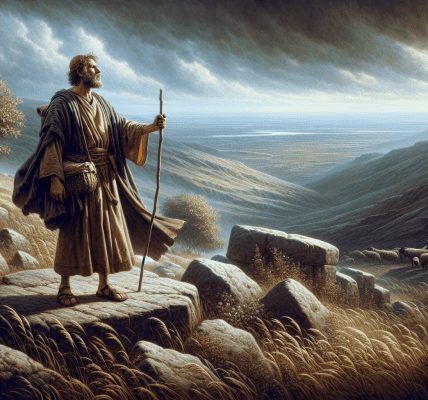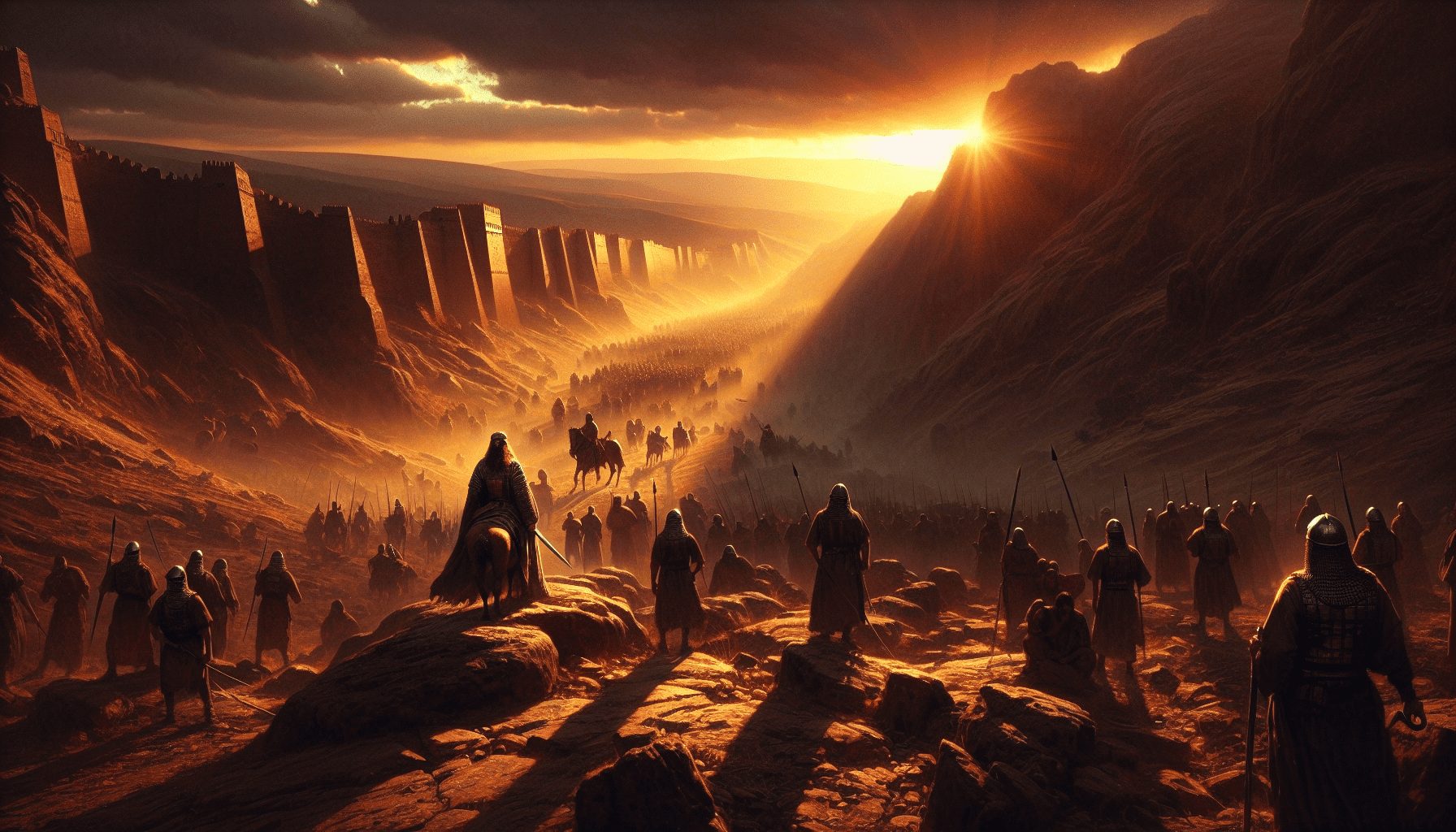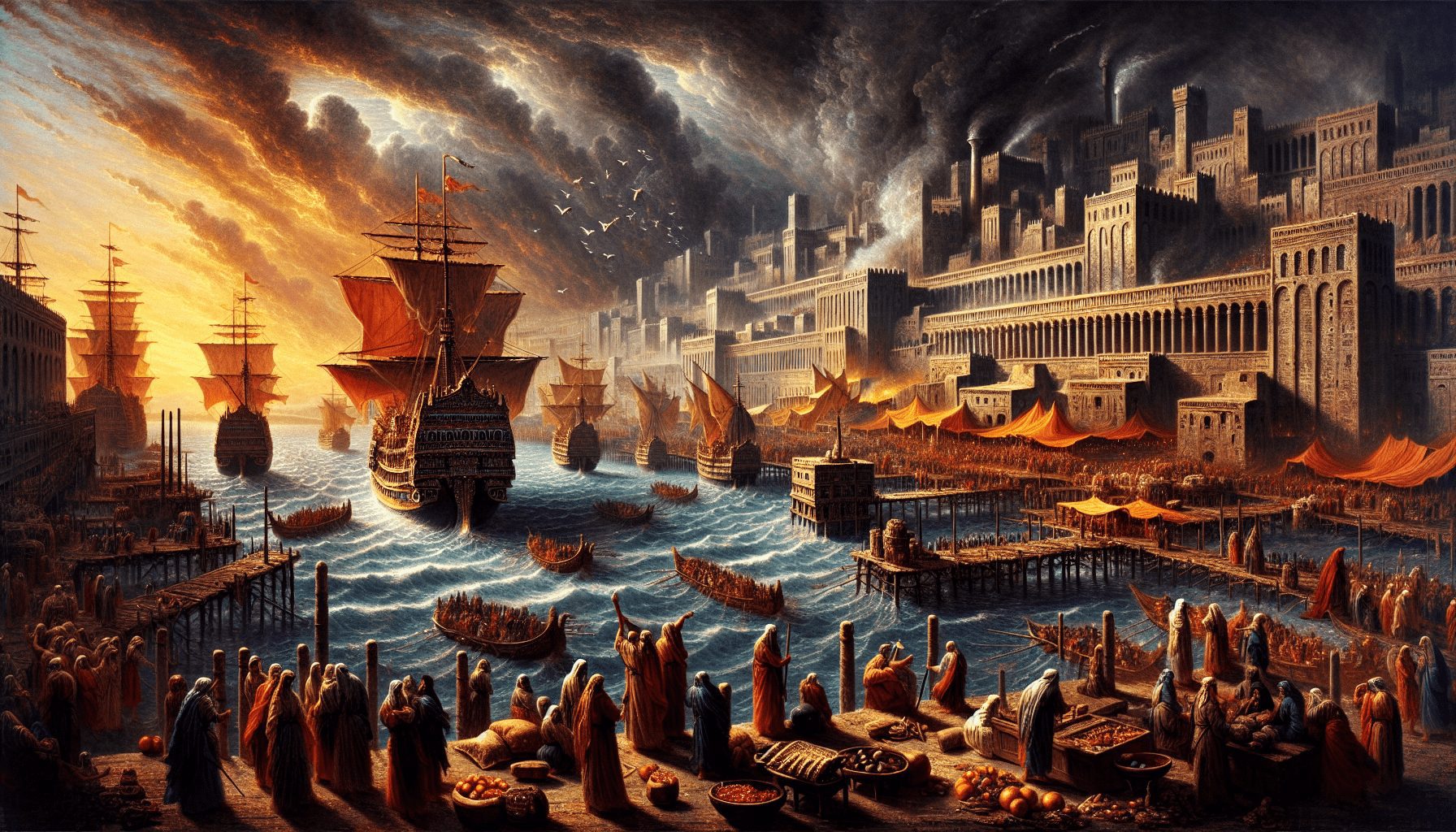**The Unfathomable Majesty of God: A Meditation on Job 9**
In the land of Uz, where the winds whispered across the desolate plains and the sun blazed mercilessly upon the earth, there sat a man named Job. Once great in wealth and honor, now he was a figure of sorrow, his body covered in painful sores, his heart heavy with grief. His friends had come to comfort him, yet their words were like salt upon his wounds, accusing him of hidden sin, insisting that his suffering was the just punishment of God.
But Job, though he lamented his agony, knew in his soul that the ways of the Almighty were beyond the grasp of mortal men. One evening, as the sky darkened and the first stars pierced the heavens, Job lifted his voice—not in defiance, but in awe—and spoke of the greatness of God.
**”Truly, I know that it is so,”** he began, his voice weary yet resolute. **”But how can a man be in the right before God? If one wished to contend with Him, he could not answer Him one time out of a thousand.”**
Job’s words hung in the air, heavy with truth. For who could stand before the Creator of the universe and demand an accounting? Who could question the One who stretched out the heavens like a curtain and set the boundaries of the sea?
**”God is wise in heart and mighty in strength,”** Job continued, his eyes fixed upon the distant horizon as if beholding the very throne of the Almighty. **”Who has hardened himself against Him and prospered?”**
He thought of the mountains, ancient and unshakable, yet at the mere touch of God’s displeasure, they crumbled into dust. The earth itself trembled beneath His feet, and the pillars of the heavens quaked at His rebuke. The sun, that fiery orb which ruled the day, did not rise except by His command, and the stars were but sparks kindled by His breath.
**”He alone spreads out the heavens,”** Job murmured, **”and treads upon the waves of the sea.”**
He imagined the constellations—Orion, the Pleiades, the Bear with her cubs—each one placed in the sky by the hand of the Eternal. Their paths were known only to Him, their courses set by His decree. **”Behold, these are but the outskirts of His ways,”** Job whispered. **”How small a whisper do we hear of Him! But the thunder of His power—who can understand?”**
A deep weariness settled upon him then, not merely from his suffering, but from the weight of divine mystery. If God’s power was so vast, so far beyond human comprehension, how could any man dare to challenge Him? **”Though I were innocent,”** Job said, **”my own mouth would condemn me. Though I were blameless, He would prove me perverse.”**
For even if Job summoned the strength to plead his case, who could summon God to answer? **”If I called and He answered me, I would not believe that He had heard my voice.”** The thought was terrifying—that the Almighty might come in the whirlwind, in the storm, and overwhelm him with His majesty.
**”He crushes me with a tempest,”** Job confessed, his voice breaking. **”He multiplies my wounds without cause.”**
And yet, even in his despair, Job could not deny the truth: God was sovereign. No force on earth could resist Him. **”If it is a contest of strength, behold, He is mighty! If it is a matter of justice, who can summon Him?”**
A bitter laugh escaped him. **”Though I am in the right, my own mouth would declare me guilty. Though I am blameless, He would make me crooked.”**
The night deepened around him, the stars burning cold and distant. Job bowed his head, his spirit heavy. **”I am blameless,”** he whispered, **”yet I despise my life.”**
And so he resigned himself to the inscrutable will of the Almighty. For whether in mercy or in judgment, God’s ways were beyond human reckoning. **”He destroys both the blameless and the wicked,”** Job said. **”When disaster brings sudden death, He mocks the despair of the innocent.”**
The earth, it seemed, was given into the hand of the wicked. The faces of its judges were veiled—if not He, then who?
**”My days are swifter than a runner,”** Job lamented. **”They flee away; they see no good. They pass by like ships of reed, like an eagle swooping on its prey.”**
Even if he tried to forget his sorrow, to force a smile and set aside his grief, his terror would remain. **”For I know You will not hold me innocent,”** he said to the heavens. **”If I am condemned, why then do I labor in vain?”**
There was no answer. Only the vast, unyielding silence of the divine.
And so Job, broken yet reverent, lifted his face once more. **”If I washed myself with snow and cleansed my hands with lye, yet You would plunge me into the pit, and my own clothes would abhor me.”**
For God was not a man, that Job could reason with Him. No court of earth could summon the Ancient of Days. No wisdom of mortals could fathom His judgments.
**”He is not a man as I am, that I might answer Him, that we might come to trial together.”**
Job’s voice grew quiet, his strength waning. **”There is no arbiter between us, who might lay his hand upon us both, who might turn aside His rod from me, so that His terror would not frighten me.”**
The thought was both a plea and a lament. For in all the universe, there was no one to stand between God and man, no mediator to bridge the chasm between the Holy and the fallen.
And so Job, in his suffering, could only speak—not in accusation, but in trembling wonder. **”Then I would speak without fear of Him, for I am not so in myself.”**
But the night remained silent, the stars unmoved.
And Job, alone in the vastness of creation, bowed before the mystery of God.
